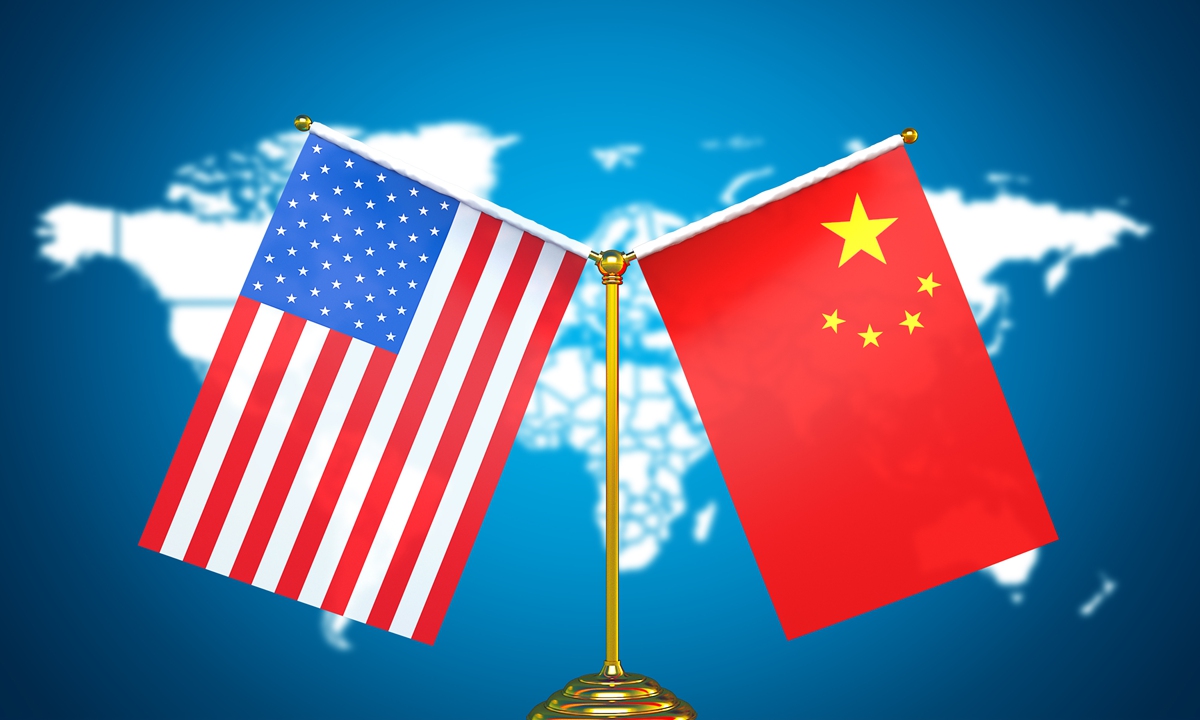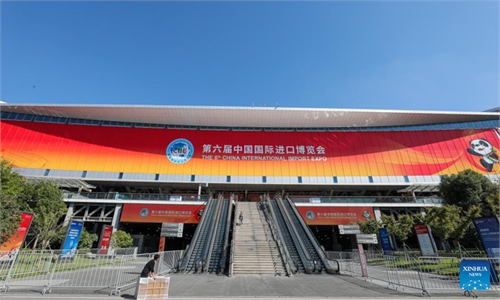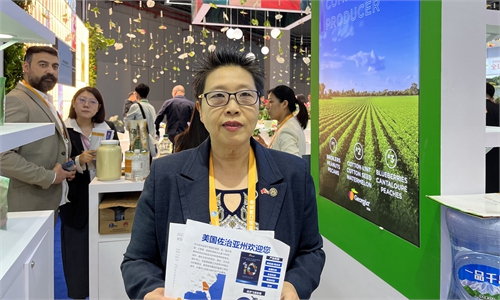Chinese Vice Premier He Lifeng to visit US; better bilateral relations require US goodwill: analysts

China US Photo:VCG
Chinese Vice Premier and lead person for China-US economic and trade dialogue He Lifeng will visit the US from Wednesday to November 12, at the invitation of American Treasury Secretary Janet Yellen, China's Foreign Ministry announced on Monday.
Analysts pointed out that He's and Yellen's talks could go beyond monetary and economic policies, as the Chinese Vice Premier has assumed key positions at the Central Financial Commission and the Central Financial Work Commission, two crucial bodies in China's financial policymaking, according to media reports on Monday.
The recent wave of bilateral visits by high-ranking officials show a sign of easing China-US relations, but the US is hoped to match its words with deeds to improve the relationship, analysts said.
In July, He Lifeng met with Yellen in Beijing and the two sides had in-depth, candid and practical exchanges on the economic and financial situation of the two countries and the world, as well as on working together to address global challenges.
He Lifeng's visit to the US is reciprocating Yellen's earlier visit to Beijing, which indicates the two sides can expand bilateral cooperation, Gao Lingyun, an expert with the Chinese Academy of Social Sciences, told the Global Times on Monday.
Recently, American federal and local government officials and scholars have visited China more frequently, and there is a clear sign that the two countries can put aside disagreements and focus on areas of common interest, said Gao.
And, the American Chamber of Commerce in Shanghai announced on Thursday that it will co-host the American Food and Agriculture Pavilion with the US Department of Agriculture at the ongoing China International Import Expo (CIIE) held in Shanghai, marking the first official US participation in the import fair since its first edition in 2018.
US-based materials science company Dow signed a $300 million memorandum of understanding with ZKH Group at the CIIE on Sunday, marking the first order of the first day at the CIIE in 2023.
In addition to monetary and economic policies, the dialogue is expected to touch a wide range of issues, including common interests between the two countries, the debt problems of developing countries and other global issues, He Weiwen, a senior fellow of the Center for China and Globalization, told the Global Times on Monday.
Since the beginning of 2023, despite the "decoupling" or "de-risking" push advocated by some US politicians, commercial ties between the two countries have become increasingly close with frequent visits.
For example, California Governor Gavin Newsom paid a visit to China in October, aiming to enhance cooperation on environmental protection, climate change and clean energy cooperation.
In September, He Lifeng met with Myron Brilliant, senior advisor to the US consulting firm Albright Stonebridge Group and former executive vice president of the US Chamber of Commerce, in Beijing, where they exchanged views on the international economic situation, China-US economic and trade cooperation and other topics, according to the Xinhua News Agency.
However, some observers noted that China should be vigilant as the US policy of long-term containment against China's development remains unchanged, and the recent overtures may simply be aimed at solving short-term economic problems at home.
The recent frequent exchanges have been mainly in the economic and trade field. Economic and trade relations appear to be warming up, but Washington's foreign policy toward China has not significantly changed in terms of tariffs, restrictions on China-related investment or sanctions against Chinese enterprises, Li Yong, a senior research fellow at the China Association of International Trade, told the Global Times on Monday.
"The political climate in the US has not fundamentally altered its attitude toward China, and the frequent contacts are more like a transitory approach," said Li.
The technology war initiated by the US against China's high-tech industry has been escalating, while the US has not shown sincerity in removing or reducing the trade restrictions it has imposed on China.


